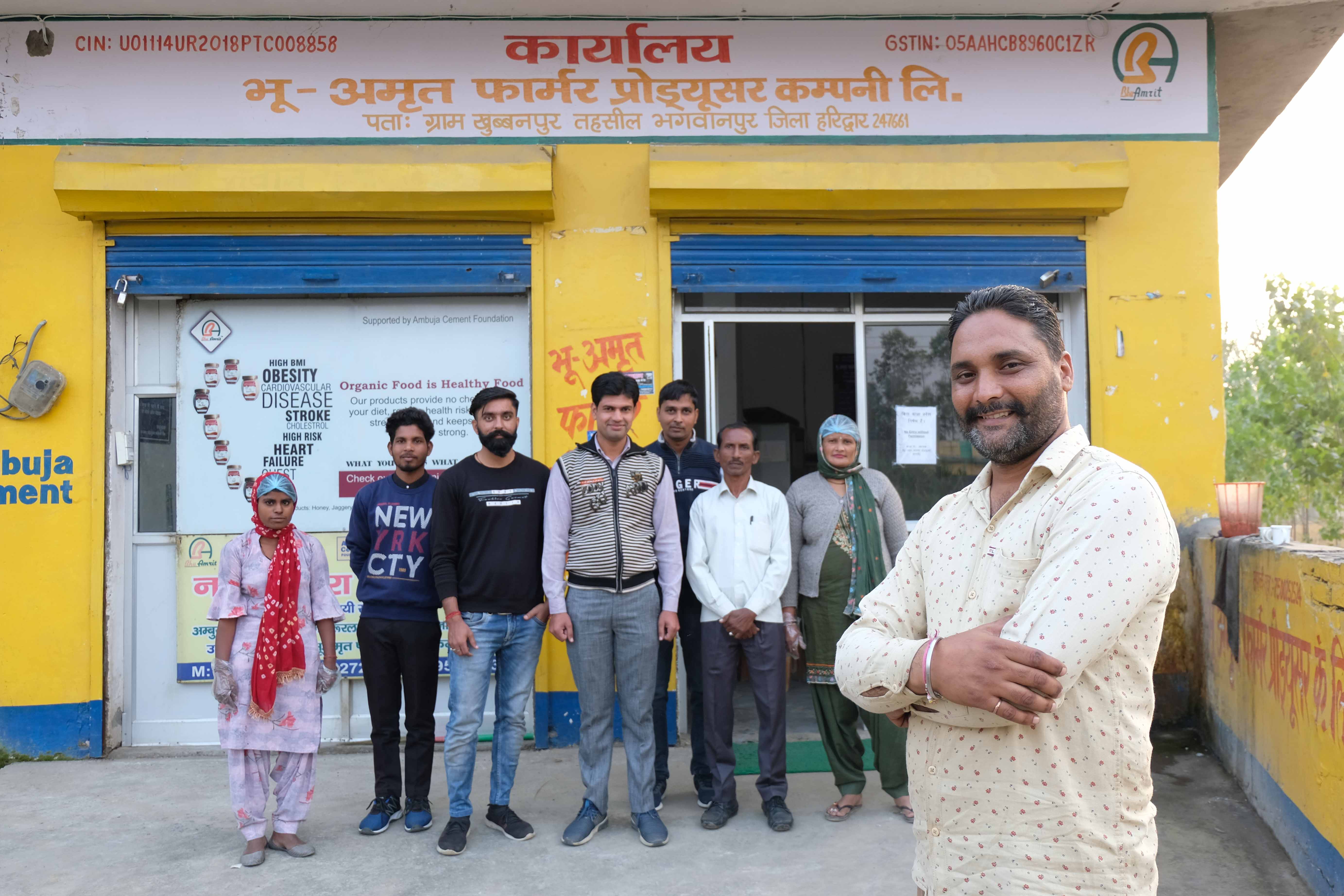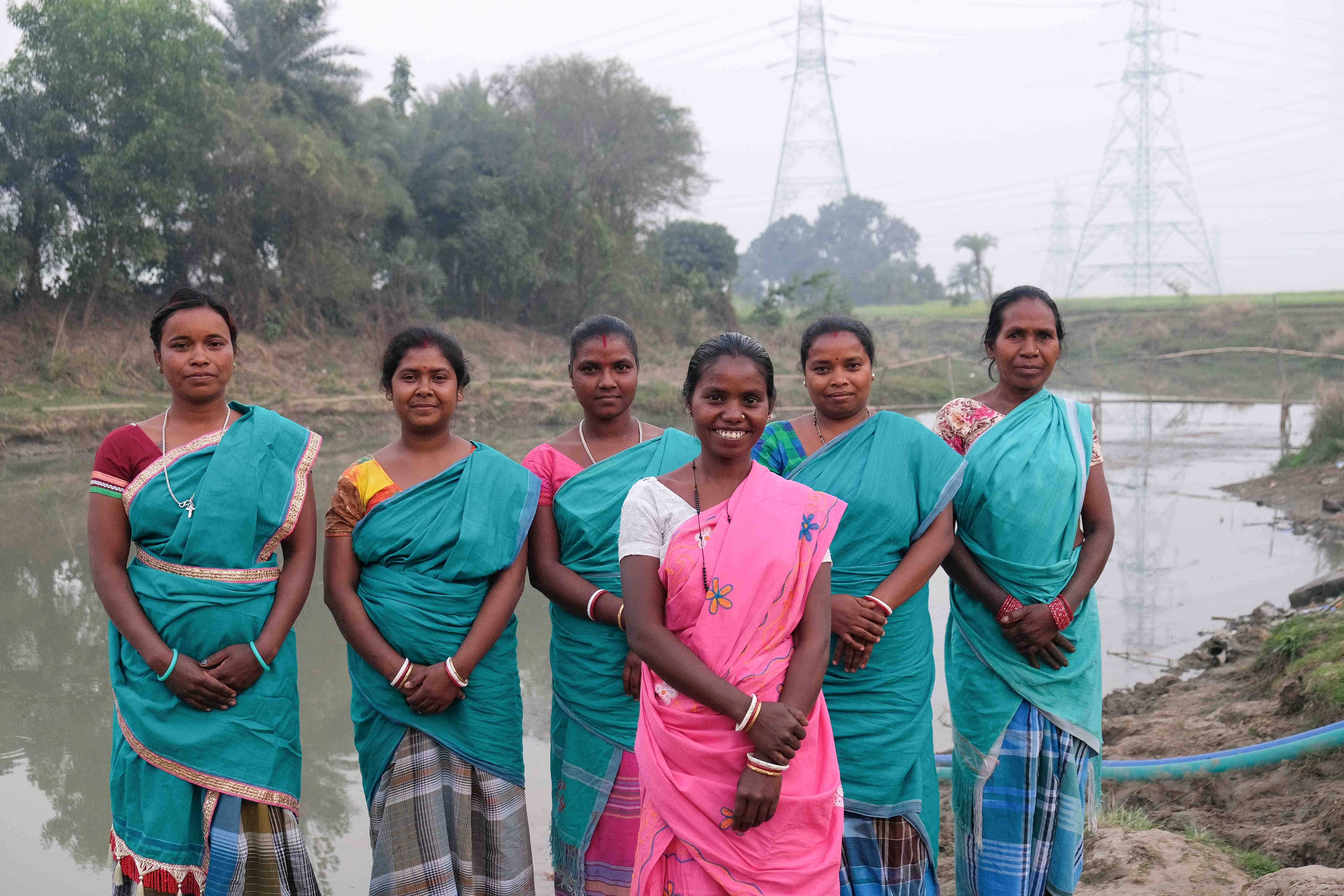When it comes to community development, the selection of the right ‘Leaders’, can either make or break a project. Ambuja Foundation’s veteran rural development professionals, Ravi Nayse, Vice- President (Skills) and Manov Maity, Area Program Manager have a lot to say on the topic, simply because the success of their work relies upon it, so heavily. With over almost 30 years of experience in identifying the ‘diamonds in the rough’ to drive community change, this is where Ambuja Foundation is a specialist, and Ravi and Manov are eager to share the key things they look for in selecting the right community leader.
So what types of leader are we talking about here? We are not talking about the formal community leaders like Sarpanches, but the ones who are elected as key project drivers from the community like Presidents of people’s institutions like Federations, Farmer Producer Companies and Water User Associations. Also, those in less formal roles such as community volunteers who drive programs on our behalf - women selected as Sakhis, or Pashu Swasthya Sevikas, Agri Extension workers, volunteer Covisainiks or youth trained to drive Apeksha initiatives.
According to them there are 5 key factors to consider in selecting the right person to lead:
i) A Person who can develop a Long-Term Vision: Having a long-term vision is an essential quality in order for a leader to inspire and unite a group. Without a vision, what is a leader leading a group towards? Additionally, in the initial phases of a project there is a lot of work and there are no tangible benefits for anyone – the leader has to have a long-term vision to encourage everyone to wait and get the benefits.
ii) Community Acceptance: Will they be accepted by the community or not? Is there consensus? Will they be respected or not? Do they already have a voice or some kind of reputation in the community? These are essential questions to answer to ensure the appointment of someone who has the ability to mobilise others and unite them towards a common goal.
iii) Time Availability: The amount of time a person has to invest in a project is critical. If it is a woman with the responsibility of very young children, it may be difficult for her to dedicate the time required to drive the project. Or if they are very busy running a business, where would they find the time to commit. There must also be a willingness to invest that time in driving the project forward by the leader
iv) Have they known Struggle: Are they from the deprived community? Can they connect with the problems and empathize with the struggles that others are facing? This is essential in order for community leaders to connect with members and bring forth the ‘drive’ and motivation a project needs, in order to be successful. On the other hand, one is so deprived that seeing beyond their own struggle would also not work.
v) Ability to Evolve: Everyone has a leadership quality, but evolving that is important – building the capacity and enabling that leadership to grow is key. Leadership should be evolving in nature where community leaders grow and transform themselves continuously in their learning journey. Additionally, sometimes a lot of unlearning is also required to take place.
Sounds simple doesn’t it? But the on-ground reality is often a different scenario, and there are many minefields to navigate along the way. Let’s take a look at what happens when you choose the wrong type of leader - Manov Maity speaks vehemently on the subject.
“Some people come with a vested interest, which we may not realise in the beginning. They want to ‘encash’ this at some time during the process – misleading other people or not representing the best interests of the group in the process.” He outlines. “They hide things under the carpet, mislead others, spread negativity and distrust which is never good for the greater good,” He says.
Ravi Nayse pitches in with his own diverse experiences. “We’ve had similar experiences in Water User Associations, whereby those farmers who have land close to water bodies and sources have a vested interest in the project, trying to gain control via a leadership position.” Ravi said. “When we realize that, we try to discourage them from coming into a leadership position. Or if they have a strong personality, we need to try to promote other people to overpower them.” He said.
“Over a period of time it ultimately depends on our facilitation” Manov says. “It must be participatory and transparent. And we must also take gender into consideration,” he says.
“In the grassroots rural community context, men are always overpowering and overshadowing the women. Men dominate every political situation and it’s difficult for women’s voices to be heard. This once again depends on our facilitation and ability to create a conducive ecosystem to promote the voices of women. We also build the capacity of women to take decisions – unless women can play a role in decision making, they can’t come to the fore as leaders. We also don’t just want 1 or 2 women involved. There needs to be at least a group of them who come together to support one another.” Ravi Nayse said.
“Often times, we see leadership change also, and that can be a good thing. Based on their value system and vision, sometimes leaders change. For example, the FPO in Bhatinda which was founded 7-8 years ago. In the initial years, the kind of activity the group produced was not successful, because of the kind of leaders we had and the governance issues that ensued. However, by changing the Board of Directors, you can radically change the trajectory of the group, but it is time consuming.” Manov said.
“When you register any FPO it is registered under the Companies Act and there is a lot of process – Pancard, DIN, digital signature - a lot of necessary compliance. Similarly, when you want to remove someone, there is a lot of compliance process also. While selecting FPO leaders, the process is very important. We work with prospective leaders for up to 6 months as a trial period before formally engaging them in the FPO.” Manov said.
And of course, the second line of leadership is also crucial to have. “It creates less risk for institutions,” Manov said. “And if something goes wrong, that person can step up and take over the reins.”
Whilst it all may sound complicated and time consuming, this is the kind of detail and effort that is required in order to find lasting success on the ground when it comes to development. “At some point, us outsiders will no longer be there,” Ravi says. “This is when having the right leaders in place is crucial to ensure that things forge ahead, either with or without our support.”




